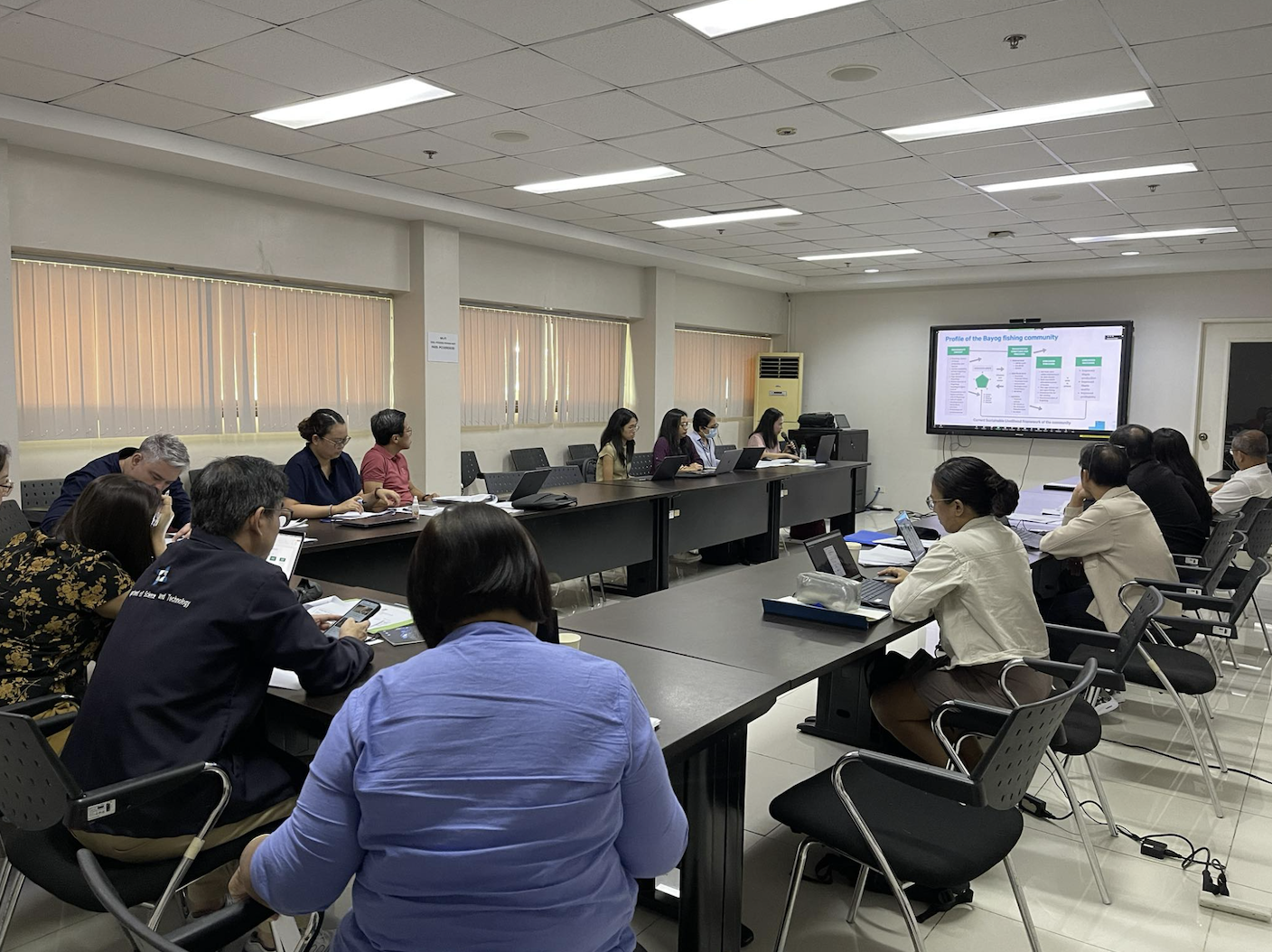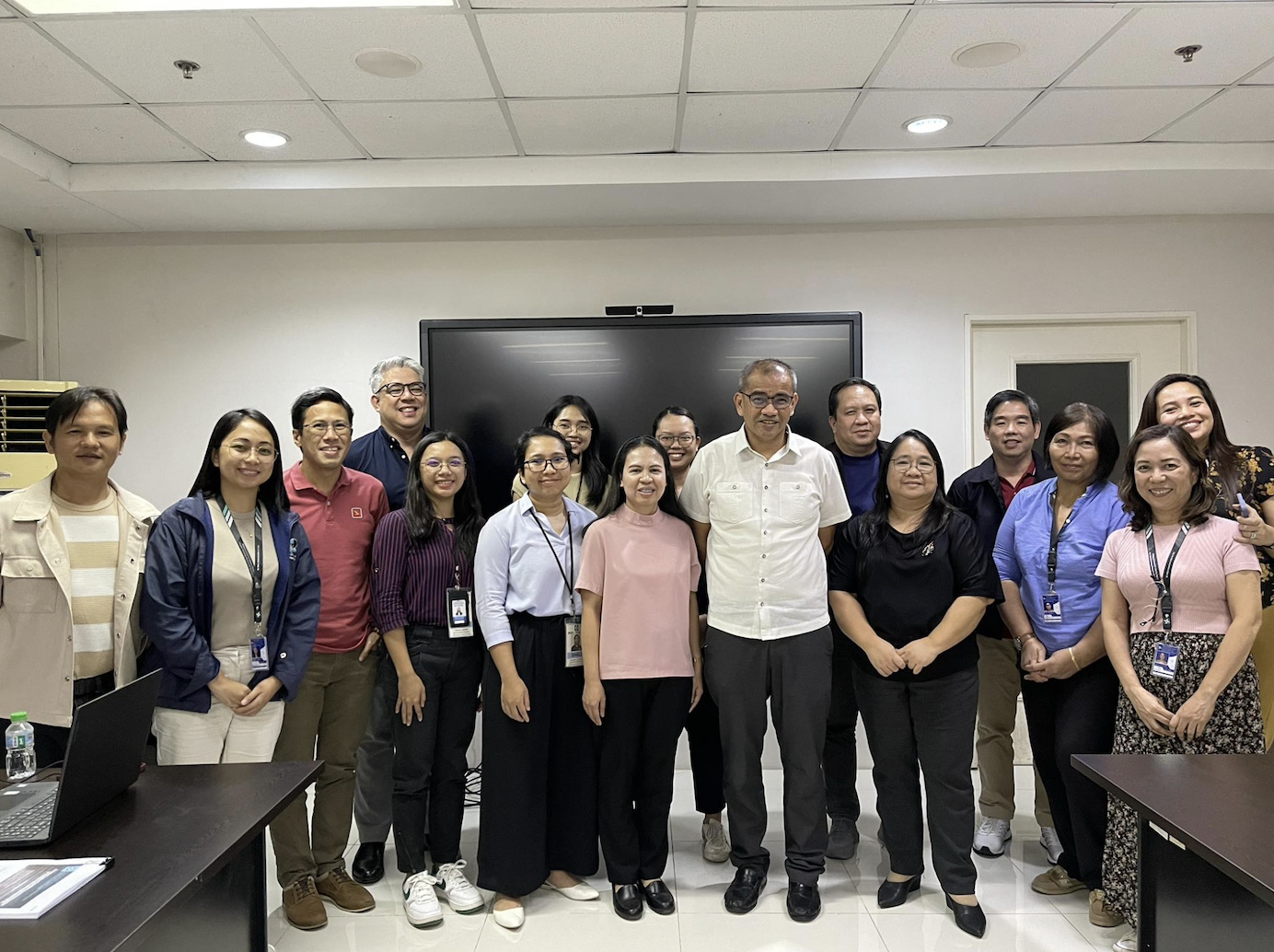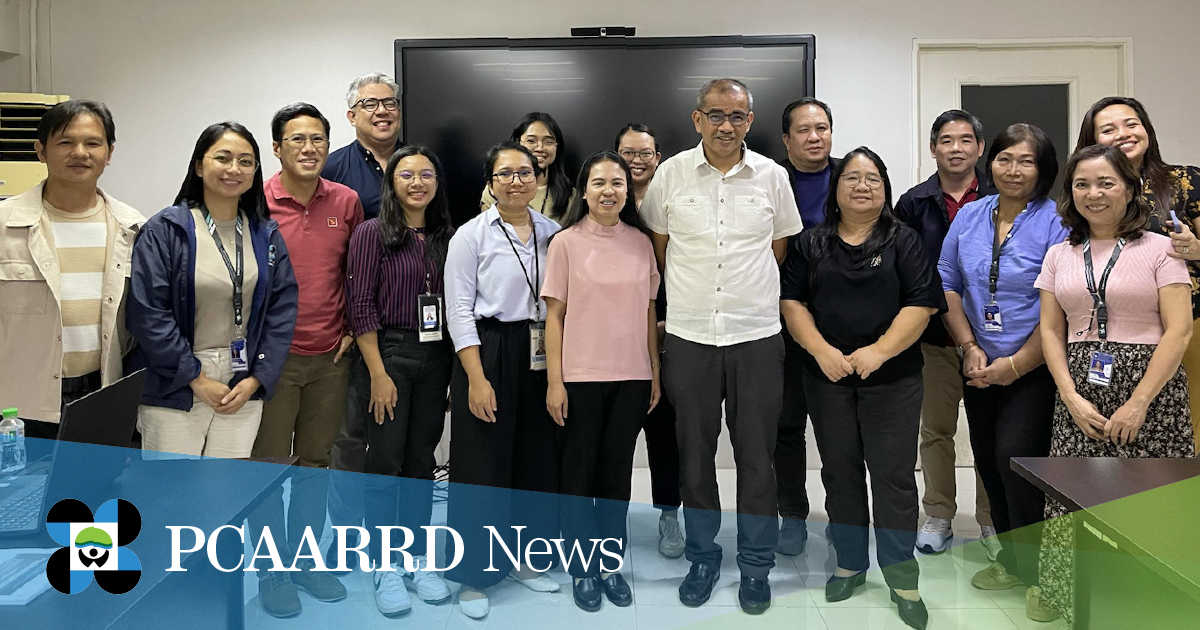The Philippine Council for Agriculture, Aquatic and Natural Resources Research and Development of the Department of Science and Technology (DOST-PCAARRD), through the project, “Establishing the PCAARRD Impact Communities (PCAARRD Para sa Pamayanan [3Ps]),” has formulated a protocol for the establishment of PCAARRD impact communities, where impacts of science and technology (S&T) interventions in the agriculture, aquatic, and natural resources (AANR) sector can be generated and showcased.
The 3Ps project generally aims to establish impact communities in selected agroecological environments to demonstrate the importance and results of S&T interventions in improving AANR-based livelihoods. This will develop a comprehensive model of how DOST-PCAARRD produces positive impacts, contributing to the improvement of implementation strategies of S&T interventions.

Presentation of project results during the technical panel review of the 3Ps project. (Image credit: DOST-PCIEERD)
The project is being funded by DOST and monitored by DOST-Philippine Council for Industry, Energy and Emerging Technology Research and Development (PCIEERD).
Project results were presented during the Oral Presentation and Technical Panel Review facilitated by DOST-PCIEERD on May 10, 2024, at the ADMATEL Building, DOST Compound, Bicutan, Taguig City, Metro Manila.
During the technical panel review, Project Leader Genny G. Bandoles discussed the development and subsequent application of the protocol to an initial set of three project sites with different agroecological conditions. Results of community profiling, technology needs assessment, SWOT analysis, cursory evaluation of feasibility, development of a theory of change, capacity building, and other activities were presented to elaborate how suitable S&T interventions and technologies were selected with thorough consideration of the characteristics and needs of intended users, such as farmers and fisherfolk.
The initial set of communities to undergo S&T interventions consisted of fruit and vegetable growers, fisherfolk, and indigenous peoples engaged in AANR-based livelihood activities in four barangays in Laguna and Oriental Mindoro. The 3Ps project has coordinated and collaborated with various organizations and agencies, including the Pampamayanang Mangyan Ugnayan, Inc., Mindoro State University, and the Municipal Agriculturist Office of Los Baños. It has also interviewed other stakeholder agencies.
DOST-PCIEERD Policy Coordination and Monitoring Division Senior Science Research Specialist Ulysses Palmones gave the opening remarks during the event.

Participants during the technical panel review of the 3Ps project. (Image credit: DOST-PCIEERD)
In DOST-PCIEERD Executive Director Enrico Paringit’s closing remarks, he congratulated the team and highlighted the project’s significance in providing a step to determine how impact is generated and monitored, in line with the country’s national evaluation policy framework. He also acknowledged the importance of the project in setting the tone and providing insights on how the methodology can be varied for other areas of possible impact.
A total of 17 participants attended the technical panel review. Technical panelists were Dr. Rodmyr Datoon of the University of the Philippines Los Baños (UPLB)-College of Agriculture and Food Science (CAFS), Mr. Geny Lapina of UPLB-College of Economics and Management (CEM), and Ms. Apple Llarena of the Department of Agriculture-Bureau of Agricultural Research (DA-BAR).
Key personnel were also present during the event including the project team, DOST-PCIEERD monitoring team, representatives from DOST-Special Projects Division (SPD), DOST-PCIEERD Finance and Administrative Division (FAD), and DOST-PCIEERD S&T fellows.
After the initial implementation phase with DOST’s funding, the 3Ps project will continue with DOST-PCAARRD’s funding as it will become a regular part of the Council’s impact assessment initiatives. The Socio-Economics Research Division’s Socio-Economic Evaluation and Impact Assessment Unit will continue establishing more impact communities using the developed protocol.

